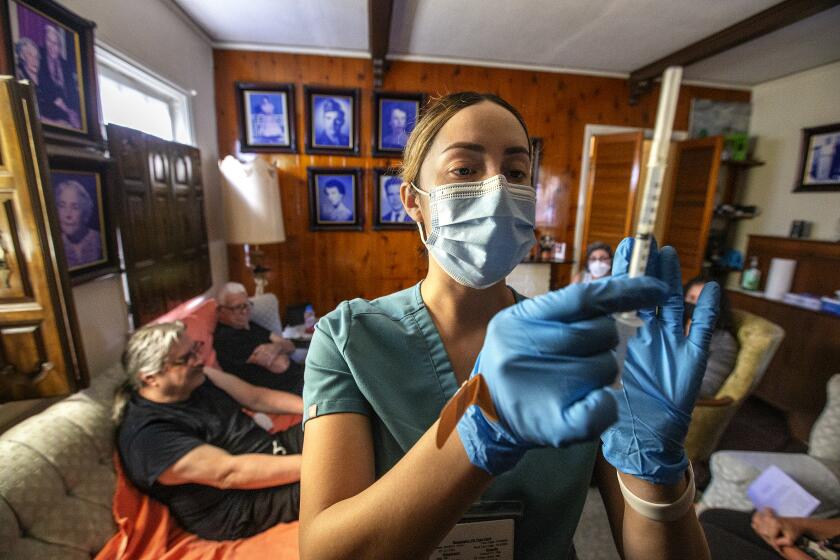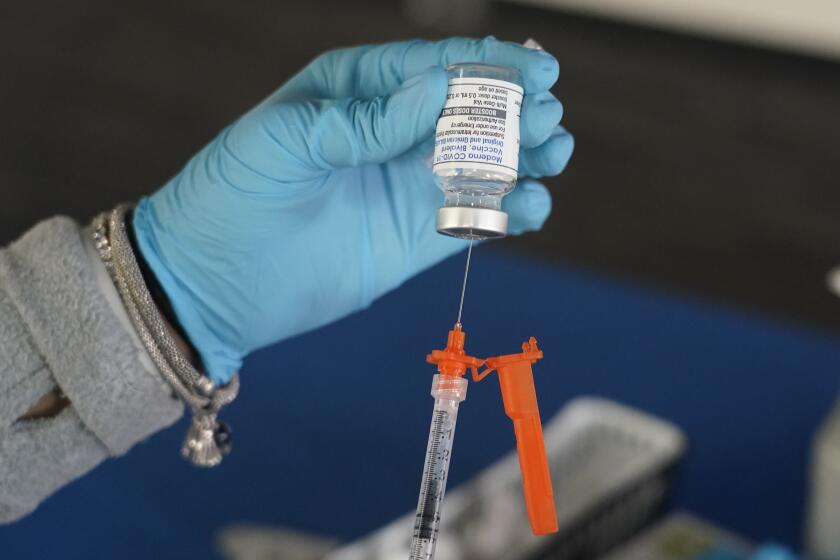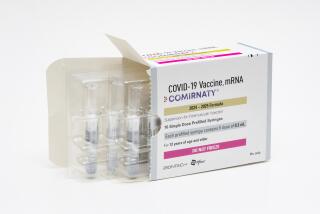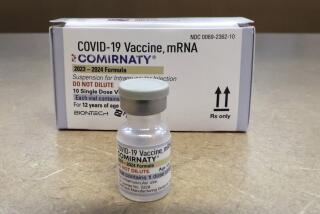Extra spring COVID booster cleared for certain Americans
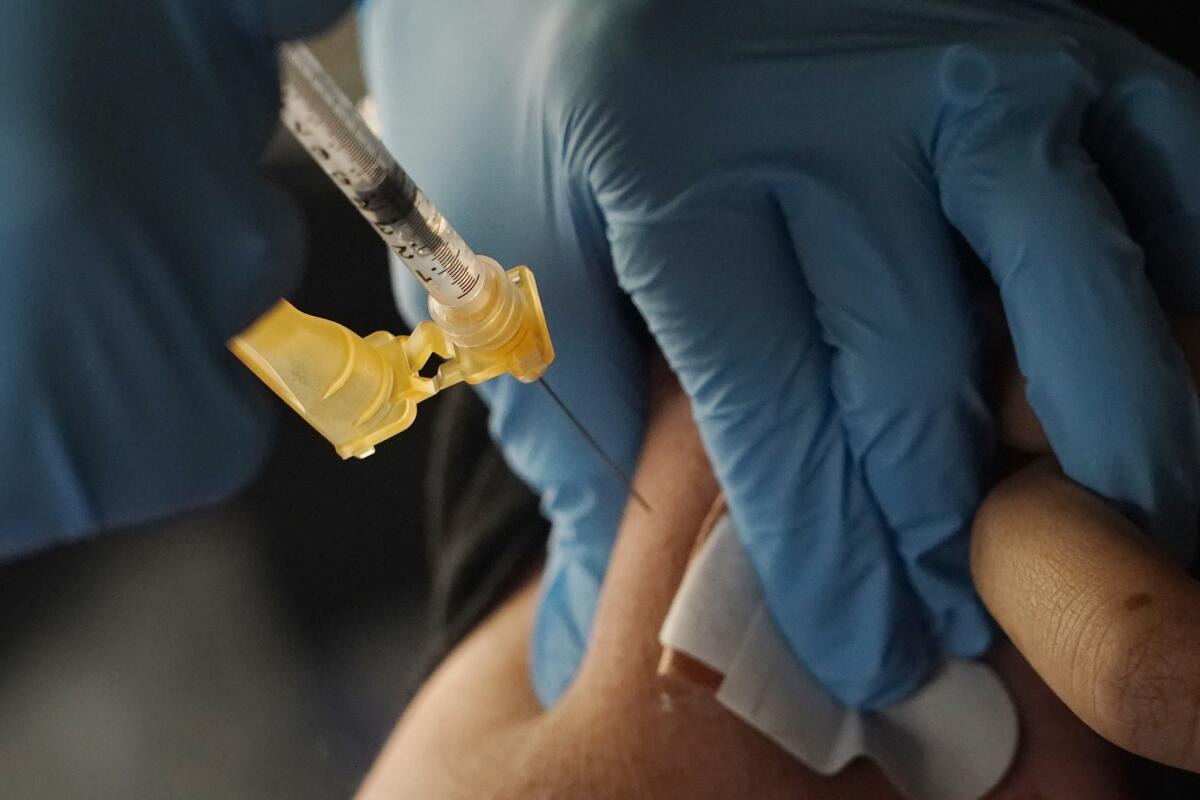
- Share via
WASHINGTON — U.S. regulators on Tuesday cleared another COVID-19 booster dose for older adults and people with weak immune systems so they can shore up protection this spring — while taking steps to make the vaccinations simpler for everyone else.
The Food and Drug Administration said anyone 65 or older can opt to roll up their sleeves again as long as it’s been at least four months since their first dose of the so-called bivalent vaccine that targets Omicron strains of the coronavirus.
And most people who are immune-compromised can choose another bivalent booster shot at least two months after their first dose, with additional doses in the future at the discretion of their physician.
For everyone else, regardless of whether it’s a first shot or a booster, the FDA also said the original versions of the Pfizer and Moderna vaccines are outdated and will no longer be used. Instead, anyone getting a Pfizer or Moderna shot will receive the newer Omicron-targeted version. For most people, if it’s their first-ever vaccine, just one dose of the bivalent vaccine will be enough.
Anyone who’s gotten their original vaccinations but hasn’t yet had an Omicron-targeted booster can still get one, but the agency will decide over the summer whether younger, healthy people will eventually be offered a second bivalent booster.
“At this stage of the pandemic, data support simplifying the use” of the Pfizer and Moderna vaccines, FDA vaccine chief Dr. Peter Marks said in a statement. “The agency believes this approach will help encourage future vaccination.”
Another COVID-19 booster may be on the way this spring, but it remains to be seen how much of an appetite there will be for more shots in California or the U.S.
Authorities in Britain and Canada already have made similar recommendations for an extra spring booster for vulnerable populations. And high-risk Americans who last got a dose in the fall have anxiously wondered when they could get another.
The Centers for Disease Control and Prevention must sign off on the newest round of boosters. Its vaccine advisors are set to meet on Wednesday.
The Pfizer and Moderna boosters contain protection against both the original version of the SARS-CoV-2 coronavirus and the Omicron strains known as BA.4 and BA.5. While newer Omicron cousins now are circulating, recent studies show the bivalent shots still are effective.
For many Americans, COVID-19 has become less of a health fear and more of an inconvenience, and masking, routine testing and other precautions have largely fallen by the wayside.
Americans who have gotten the updated COVID boosters appear better protected against symptomatic infection than those who haven’t — at least for now.
COVID-19 vaccines have saved millions of lives. And while protection against mild infections is short-lived, booster doses continue to do a good job fighting severe disease and death even as more contagious variants have popped up.
But at least 250 people in the U.S. a day still die from COVID-19, many of them elderly or frail, and protection can wane.
For eligible, high-risk groups, a spring second booster is a reasonable choice, said Dr. Matthew Laurens of the University of Maryland School of Medicine.
“We do have vaccines that are available to protect against these severe consequences, so why not use them?” he said. “They don’t do any good just sitting on a shelf. So let’s give them to individuals who are at the highest risk who can benefit the most.”
The updated bivalent COVID-19 booster shots are available at more than 1,500 sites in Los Angeles County. Here’s how to get one.
Still, only 42% of Americans 65 and older — and just 20% of all adults — got their first bivalent vaccine when they rolled out last fall, according to CDC data.
The FDA’s simplification also means changes for unvaccinated children. If their parents now want them vaccinated, tots under 5 may receive two doses of bivalent Moderna vaccine or three doses of the Pfizer-BioNTech bivalent vaccine. Those who already are 5 may get a single bivalent Pfizer shot or two Moderna doses.
Children already fully or partially vaccinated with the original Pfizer or Moderna shots may get a bivalent vaccine, but how many doses will depend on their vaccination history, the FDA said.
